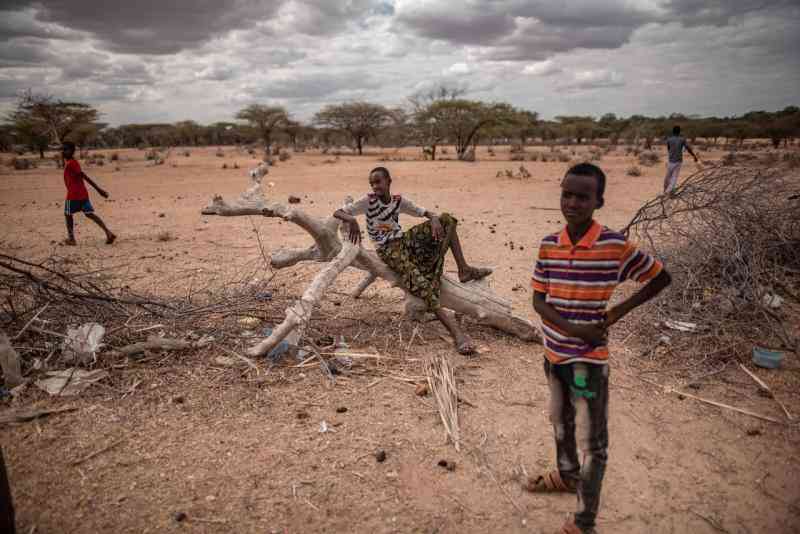×
The Standard e-Paper
Home To Bold Columnists

A section of boys relax on dried shrubs in Wajir County, as they graze their livestock. [Mercy Kahenda, Standard]
Mohamed Osman watched helplessly as drought killed his camels in Isiolo County, while in the Salabani area of Marigat in Baringo County, crops have withered in farms due to failed rainfall for two seasons. Recently, floods wreaked havoc during El Nino rains.